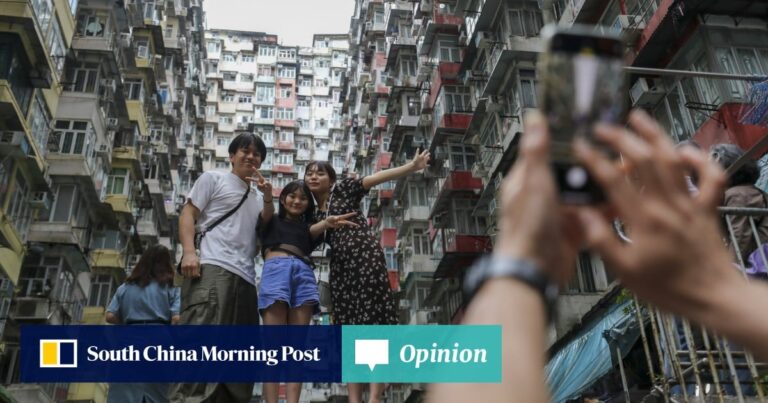For many years, Hong Kong has welcomed tourists from around the world without much effort, but in recent years it has mainly welcomed tourists from mainland China. As part of a decades-old system, Hong Kong’s tourism promotion has been largely opportunistic and riding on annually planned events. However, these efforts in the absence of a unified strategy are no longer producing results that meet Hong Kong’s economic growth needs. Travel patterns around the world, and especially in mainland China, are changing. Online media has a major influence, demands are evolving, and mature, high-spending travelers are looking for more curated, immersive experiences. For Hong Kong to catch up, a shift in mindset is needed to redefine how it approaches tourism and what it defines as successful. A unified strategy is needed to promote Hong Kong as a destination that caters to a specific market. President Xi Jinping’s recent visit to France marks the 60th anniversary of the establishment of diplomatic relations between China and France, and this year marks the first Sino-French Year of Cultural Tourism. The event is a reminder of the importance of cultural connections to better understand what audiences want and add weight to the city’s relationship.
To attract tourists, Hong Kong needs to benchmark itself against other major cities in the world. Hong Kong’s value is based in part on the city’s institutional credibility and international connections. Therefore, an integrated tourism strategy needs to put Hong Kong back on the map. Beyond tracking tourist numbers, government officials need to consider other ways to measure the economic activity and growth that tourism generates.
The “major changes” in the tourism market recently described by Xia Baolong, Director of the Hong Kong and Macau Affairs Office, suggest that Hong Kong can no longer count on its status as a magnet for mainland Chinese tourists who once came to Hong Kong to stock up on luxury goods and baby formula. Now, people can easily find the products and experiences they want or need, including through the Internet. In a world where social media heralds a borderless world, tourists increasingly value unique experiences. Hong Kong’s lineup of mega events will help generate more enthusiasm and momentum to stimulate the economy. Traveler segments such as luxury, business, MICE (meetings, incentive tours, conferences and exhibitions), leisure and wellness need to be incorporated into the overall annual planning of tourism events. Flagship carrier Cathay Pacific recently said its flying capacity is on track to return to 80% of pre-pandemic levels and reach 100% early next year, while private jet landing capacity at Hong Kong International Airport is expected to double by 2025.
Flagship carrier Cathay Pacific recently said its flying capacity is on track to return to 80% of pre-pandemic levels and reach 100% early next year, while private jet landing capacity at Hong Kong International Airport is expected to double by 2025.
This move presents a golden opportunity for Hong Kong to target high-net-worth tourists by introducing premium entry corridors for global VIPs. Many airports, including Dubai and Paris, offer such paid services, and Hong Kong has all the necessary qualifications to join this exclusive club.
Hong Kong must smartly leverage its first-class facilities, including the soon-to-open Kai Tak Sports Park, and unique cultural experiences, from parks and markets to hidden alleyways and a vibrant food and drink scene, to celebrate the city’s place in the world and its distinctive character.
Community support is crucial to the success of any tourism campaign, as local people are our best ambassadors and can make visitors feel truly welcome. By making extensive use of online apps across tourism marketing channels, we can better define and express special Hong Kong experiences and highlight what makes Hong Kong unique in the eyes of our target consumers.

08:26
Set in Hong Kong, the city itself becomes home to the biggest movie stars
Set in Hong Kong, the city itself becomes home to the biggest movie stars
With digital devices and visual effects putting travel experiences within reach for many of us, designing a comprehensive tourism strategy requires planning years ahead to anticipate trends and position Hong Kong, whilst leveraging opportunities from regional partnerships and global events.
Last month, several events sparked global exchanges. Following President Xi Jinping’s visit to France, the US-China Tourism Leadership Summit was held in Xi’an, Shaanxi Province, where government and travel industry leaders from the two countries reunited to discuss ways to support the travel industry.
In the same week, Hong Kong’s Financial Secretary Chan Mo-po led a delegation to Paris and San Francisco to participate in the Guangdong-Hong Kong-Macao Greater Bay Area Development Dialogue with overseas counterparts, reinforcing Hong Kong’s role as a “super connector.” Also last month, Minister of Culture, Sports and Tourism Yeung Wan Hung led a delegation to Paris to support Hong Kong’s blockbuster film “Twilight Warriors” for a midnight screening at the Cannes Film Festival.
These people-to-people exchanges, focusing on culture, sports and tourism, can leverage Hong Kong’s soft assets and project a new image of Hong Kong. Hong Kong has a lot of stories to continue to tell the world. In this way, we can generate a groundswell of support that sends a strong collective signal that Hong Kong is back on track and welcoming visitors.
Agnes Tsang is head of external relations for Rosewood Hotel Group and Chow Tai Fook Jewellery Group, and a former senior researcher in the Central Policy Department of the Hong Kong Special Administrative Region Government. The views expressed in this article are the author’s own.

